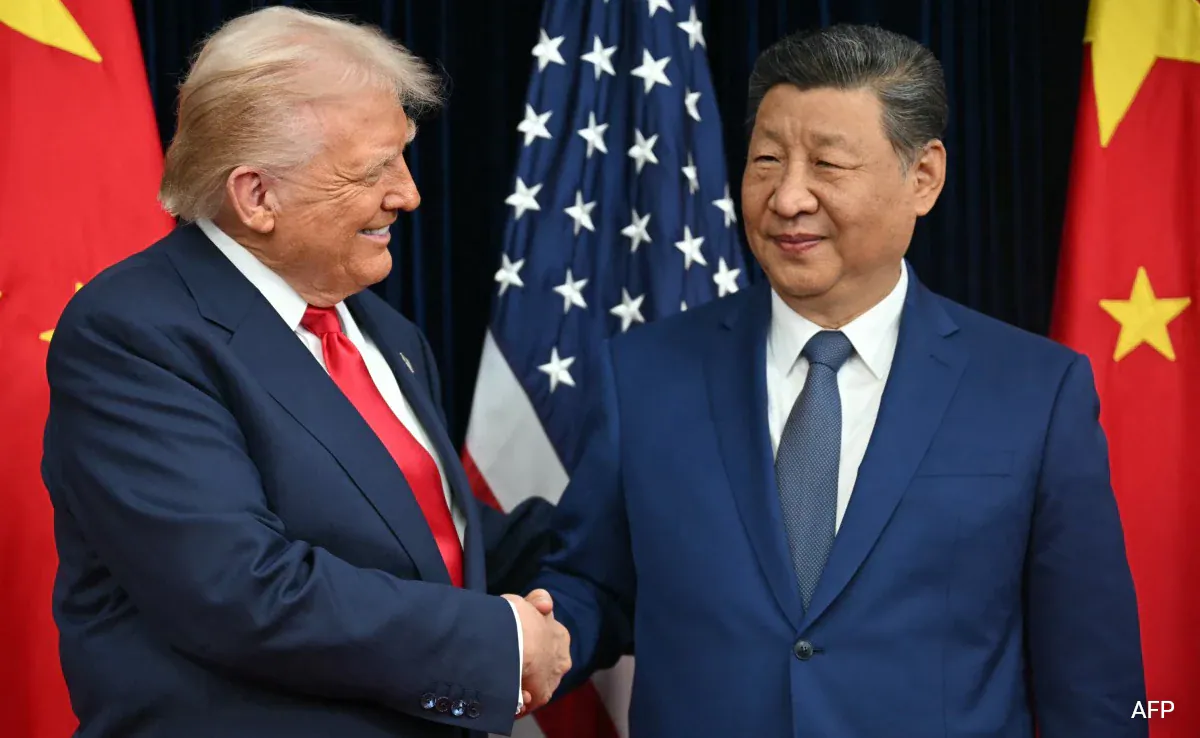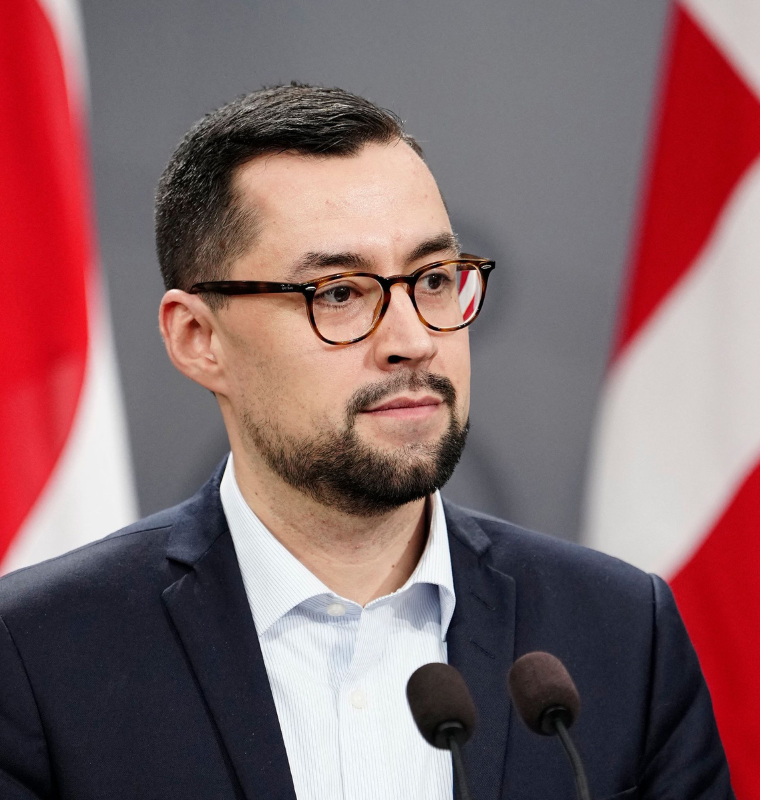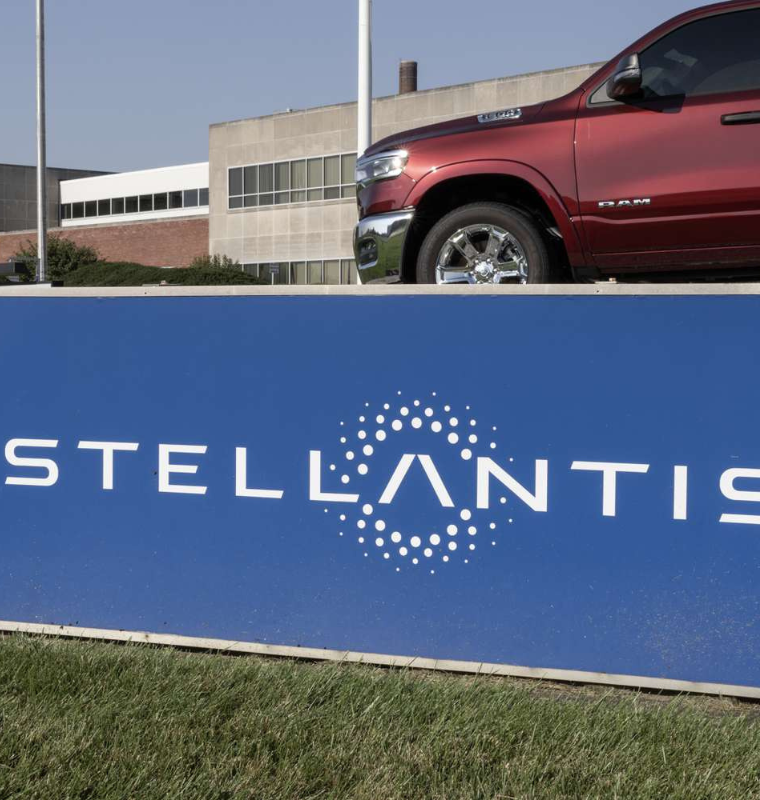Trump Slashes Fentanyl Tariffs to 10% as U.S. and China Strike Rare Earth Supply Deal
Trump Slashes Fentanyl Tariffs to 10% as U.S. and China Strike Rare Earth Supply Deal
By
Calder Monroe
Last updated:
October 30, 2025
First Published:
November 30, 2025

Photo: NDTV
A New Chapter in U.S.-China Trade Relations
U.S. President Donald Trump announced a breakthrough in trade relations with China following a high-stakes meeting with Chinese President Xi Jinping in South Korea. The two leaders reached a one-year agreement on rare earth and critical mineral supplies, while Trump also cut fentanyl-related tariffs on China from 20% to 10%, lowering the overall tariff burden on Chinese imports to 47% from 57%.
Speaking aboard Air Force One, Trump described the talks as “amazing,” emphasizing that “a lot of decisions were made” during their one-hour-and-forty-minute meeting—the first between the two leaders in six years. He confirmed that the rare earth supply deal would be renewed annually, ensuring continuous negotiation between the world’s two largest economies.
China to Curb Fentanyl Exports, Resume U.S. Agricultural Imports
In exchange for the tariff cut, Beijing pledged to intensify efforts to restrict fentanyl exports—a substance linked to America’s ongoing opioid crisis—and resume large-scale purchases of U.S. soybeans and other agricultural goods.
Following the announcement, soybean futures dipped 1.6% on the Chicago Board of Trade, while China’s CSI Rare Earths Industry Index climbed over 2%, according to data from LSEG.
Han Shen Lin, China director at The Asia Group, said the tariff reduction directly addresses “a key Chinese grievance,” adding that Washington is “finally recognizing Beijing’s efforts to regulate the export of fentanyl precursors.”
Technology and Trade Talks Extend Beyond Tariffs
Trump also confirmed discussions regarding Nvidia chip sales to China, though he clarified that the talks did not include the company’s most advanced Blackwell processors. “They are going to be talking to Nvidia and others about taking chips,” he said, signaling potential progress on technology exports.
When asked about Taiwan, Trump stated that the issue was not part of the discussion, suggesting both sides aimed to keep the focus on trade and cooperation rather than geopolitical disputes.
Diplomatic Breakthroughs and Future Visits
Trump revealed plans to visit China in April, followed by a reciprocal visit by Xi to the United States, though no specific dates were confirmed. Analysts view these visits as a sign of renewed diplomatic warmth between Washington and Beijing.
Alfredo Montufar-Helu, Managing Director at Ankura Consulting’s GreenPoint Business, said the results of the Trump-Xi summit “exceeded expectations,” noting that “their personal diplomacy has not only halted escalating tensions but produced results that seemed unattainable just months ago.”
However, he cautioned that core issues in U.S.-China rivalry remain unresolved, particularly those concerning technology controls and intellectual property protection.
Setting a Cooperative Tone
At their meeting in Busan’s Gimhae Air Base, Trump referred to Xi as “an old friend,” while Xi emphasized the importance of partnership, stating that “China and the U.S. should be friends and partners.” He added that it was “normal” for two major powers to experience friction but highlighted that China’s development aligns with Trump’s vision to ‘Make America Great Again.’
The friendly tone marked a noticeable contrast to Xi’s meeting with former U.S. President Joe Biden last year, which focused on the inevitability of competition between the two nations. Yue Su, principal economist at the Economist Intelligence Unit, said the new tone reflects a “mutual desire to de-escalate” and foster stability in trade relations.
Outlook: Fragile Progress, Promising Signs
While the agreement lacks a long-term structural foundation, experts believe both sides will maintain the deal in the short term to demonstrate goodwill and rebuild trust. The pact signals that the U.S. and China are stepping back from the brink of a trade escalation that had threatened global supply chains and commodity markets.
Trump’s decision to lower fentanyl tariffs and secure rare earth supplies—vital materials used in electronics, defense systems, and clean energy technologies—underscores Washington’s pragmatic approach to balancing economic interests with strategic priorities.
As both nations prepare for upcoming high-level visits, the world will be watching whether this truce can evolve into a long-term framework for cooperation—or whether it will serve as another temporary pause in a rivalry that continues to define global trade.
Popular articles
Subscribe to unlock premium content
Snow, Silence, and Splendor

The $60 Million Market for Ultra-Exclusive Executive Pop-Up Experiences

Conquering the Poles in Absolute Luxury

Snow, Silence, and Splendor

The $60 Million Market for Ultra-Exclusive Executive Pop-Up Experiences

Snow, Silence, and Splendor









